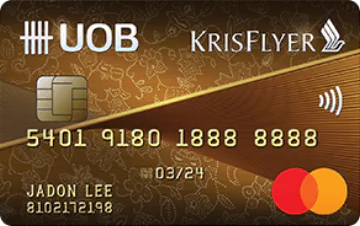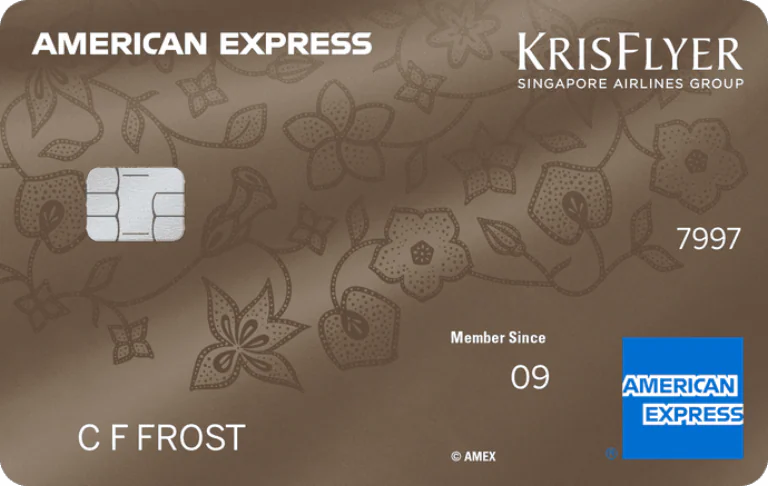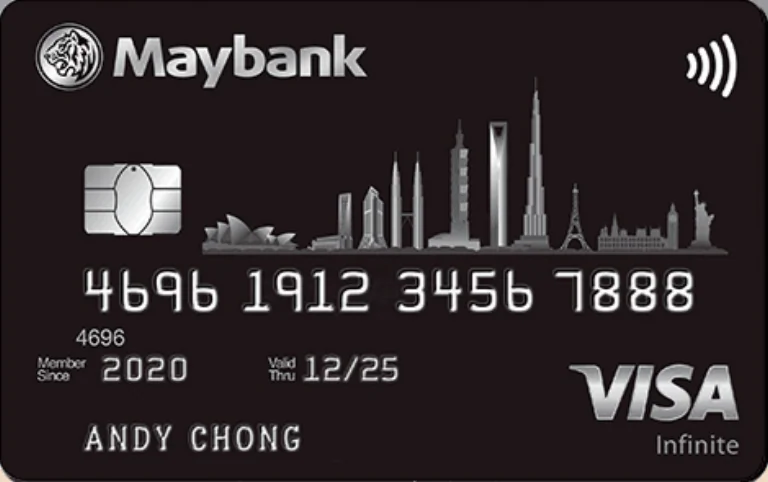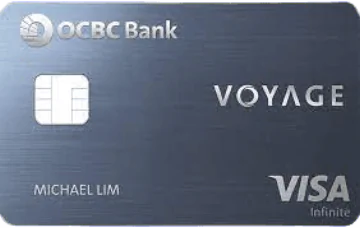Best Credit Cards For Paying Medical Bills (2025)
Updated: 10 Nov 2025
The information on this page is for educational and informational purposes only and should not be considered financial or investment advice. While we review and compare financial products to help you find the best options, we do not provide personalised recommendations or investment advisory services. Always do your own research or consult a licensed financial professional before making any financial decisions.
While no one likes discussing medical bills, it’s something we’ll have to deal with at some point in life. Whether it’s something as serious as a life-saving surgery or something more benign like LASIK, these big-ticket expenses are usually in the four- to five-digit range.
This then begs the question: what’s the best credit card to use for such pocket-burning expenses?
How are medical transactions coded?
The first thing we need to do is pin down exactly what kind of medical treatment we’re talking about. There’s a wide range of possibilities, ranging from hospitals to dentists, physiotherapists, optometrists, and every manner of medical care. Here’s the range of Merchant Category Codes (MCC)* that medical transactions can come under:
|
MCCs |
Description |
Examples |
|
8011 |
Doctors & Physicians (Not Elsewhere Classified) |
Raffles Medical, Healthway Medical |
|
8021 |
Dentists and Orthodontists |
Parkway Dental, Royce Dental Group |
|
8031 |
Osteopaths |
The Osteopathic Centre, Osteopathy Health Care Raffles |
|
8041 |
Chiropractors |
Family Health Chiropractic Clinic, Chiropractic Studio Singapore |
|
8042 |
Optometrists and Ophthalmologists |
Capitol Optical, W Optics |
|
8043 |
Opticians, Optical Goods and Eyeglasses |
House of Spectacles, Visio Optical |
|
8044 |
Optical Goods and Eyeglasses |
OWNDAYS |
|
8049 |
Podiatrists and Chiropodists |
Dr Foot Podiatry Clinic, East Coast Podiatry |
|
8050 |
Nursing and Personal Care Facilities |
St. Andrew’s Nursing Home, Charis Manor Nursing Home |
|
8062 |
Hospitals |
Singapore General Hospital, Mount Elizabeth Hospital, all Polyclinics |
|
8071 |
Medical & Dental Laboratories |
NewPath Diagnostics Laboratory, Innoquest Diagnostics |
|
8099 |
Medical Services and Health Practitioners (Not Elsewhere Classified) |
HealthHub |
*An MCC is a four-digit code that card associations like Visa and Mastercard use to classify a merchant’s primary line of business.
The MCC matters because banks may explicitly exclude credit card rewards for a specific MCC, so knowing the MCC beforehand can help you select the right card. If you’re in doubt about the MCC of a specific merchant, you can try using the Visa Supplier Locator to look it up.
In general, you should not run into issues with any of the above MCCs, except MCC 8062. Go ahead and swipe your usual card when you visit the dentist or get a new pair of lenses made at the optometrist - you’ll earn rewards as per normal.
The problematic one is MCC 8062, which covers polyclinics and hospitals (both private and public). Such institutions usually pay a discounted processing fee, which means transactions are less profitable for the bank and payment processing company. As such, some banks have excluded these transactions from earning miles, points or cashback.
Which hospitals fall under MCC 8062?
Unfortunately, a growing number of banks now exclude MCC 8062 from earning rewards, regardless of whether it’s a private or public facility. The importance of this classification all comes down to Merchant Discount Rates (MDRs) — the transaction fees merchants pay to accept credit card payments.
Public hospitals generally enjoy lower MDRs, while private hospitals face higher ones. Because of this, banks structure their rewards policies differently: some exclude all hospital transactions from cashback or rewards, while others take a more measured approach and exclude only public hospital payments, where fees and margins are tighter. In short, the hospital’s classification determines not just its ownership, but also how your credit card rewards apply when you pay your medical bills.
First, let’s take a closer look at the list of hospitals in Singapore, as classified by Ministry of Health (MOH):
Acute hospitals
Acute hospitals — such as Singapore General Hospital, Tan Tock Seng Hospital, and National University Hospital — focus on short-term, intensive treatment for serious or urgent medical conditions. These include surgeries, severe infections, heart attacks, strokes, and other conditions that require immediate or specialised care.
Patients are typically admitted for a few days to a couple of weeks, depending on their recovery progress. Once their condition stabilises, they may be discharged home or transferred to a community hospital for further rehabilitation.
Here’s a list of all the acute hospitals in Singapore:
|
Public |
1. Singapore General Hospital 2. Changi General Hospital 3. Alexandra Hospital 4. Khoo Teck Puat Hospital 5. National University Hospital 6. KK Women’s and Children’s Hospital 7. Ng Teng Fong General Hospital 8. Tan Tock Seng Hospital 9. Woodlands Health Hospital 10. Sengkang General Hospital |
|
Private |
1. Mount Elizabeth Hospital 2. Gleneagles Hospital 3. Farrer Park Hospital 4. Crawfurd Hospital 5. Parkway Hospital 6. Raffles Hospital 7. Thomson Medical Centre |
|
Nonprofit |
1. Mount Alvernia Hospital |
Community hospitals
Community hospitals, like Ang Mo Kio-Thye Hua Kwan Hospital or St. Andrew’s Community Hospital, are designed for rehabilitation, recovery, and longer-term care. Patients often move here after being discharged from an acute hospital but still need medical support — for example, to regain mobility after a stroke, recover from surgery, or manage chronic illnesses.
These hospitals provide physiotherapy, occupational therapy, and other forms of rehabilitative care to help patients transition safely back to daily life or home care.
|
Public |
1. Jurong Community Hospital 2. Yishun Community Hospital 3. Sengkang Community Hospital 4. Outram Community Hospital 5. Bright Vision Hospital |
|
Nonprofit |
1. St. Luke’s Hospital 2. Ren Ci Community Hospital 3. Thye Hwa Kwan Hospital 4. St Andrew’s Community Hospital |
Other centres under MCC 8062
All polyclinics and the specialist centres listed below are classified under public hospitals in Singapore:
-
National Cancer Centre
-
National Heart Centre
-
National Neuroscience Institute
-
National Skin Centre
-
Singapore National Eye Centre
-
National Dental Centre
>>MORE: 3 medical situations where a personal loan can save you
Best credit cards for hospitals (MCC 8062)
KrisFlyer UOB Credit Card
- Earn 3 KrisFlyer miles per S$1 spend on Singapore Airlines, Scoot, KrisShop, Kris+ and Pelago purchases.
- Earn 2.4 KrisFlyer miles per S$1 spend on dining, food delivery, online shopping, online travel and transport spend, with min. S$1,000 annual spend on Singapore Airlines, Scoot and KrisShop
- Earn 1.2 KrisFlyer miles per S$1 on all other spend.
- 5,000 Welcome miles with first eligible spend (min. S$5).
- 10,000 KrisFlyer miles with annual renewal fee payment.
- Exclusive privileges on Scoot (via flyscoot.com/krisflyeruob), Kris+ and more.
- Terms and conditions apply for all abovementioned privileges. Visit here for more details.
- Insured up to S$100k by SDIC.
- KrisFlyer miles
- Unlimited miles
- 1st year annual fee waiver
- Spend S$15,000 or more on eligible Singapore Airlines and Scoot flight bookings within the first 12 months upon Card approval to be automatically upgraded to the KrisFlyer Elite Gold membership tier. T&Cs apply.
- Get a complimentary night stay at participating Hilton properties each year.
- Receive a Foreign Spend Miles Redemption Voucher for 18,000 KrisFlyer miles when you spend the equivalent of S$10,000 or more in foreign currency within the qualifying period.
- Receive a Renewal Miles Redemption Voucher for 10,000 KrisFlyer miles after American Express receives payment of the renewal annual membership fee each year.
- Earn 2 KrisFlyer miles for every S$1 spent on eligible Singapore Airlines and Scoot flight bookings, and KrisShop purchases, with no cap.
- Earn up to 2 KrisFlyer miles for every S$1 spent on eligible Grab Singapore transactions, up to S$200 spend in each calendar month.
- Earn 1.2 KrisFlyer miles for every S$1 spent on all other eligible purchases, with no cap.
- Hassle-free conversion with no transfer fee
- Read our full review of the American Express Singapore Airlines KrisFlyer Ascend Credit Card.
- Unlimited air miles
- Travel insurance
- Annual fee: S$397.85 (inclusive of GST) must be paid to enjoy welcome offers.
- Please refer to the American Express website (go.amex/singsaver) for the most up to date information on card benefits and its terms & conditions.
- Annual Fee required
- Up to 3X TREATS Points (1.2 mpd) on local spend.
- Up to 5X TREATS Points (2 mpd) on foreign currency spend .
- Complimentary enrolment into Maybank's Rewards Infinite Programme where TREATS Points never expire.
- Dining, shopping, and travel deals via Maybank TREATS SG app.
- Up to S$1,000,000 complimentary travel insurance coverage when you charge full travel fare to card.
- Unlimited Priority Pass lounge visits per year for primary cardholders.
- Complimentary Priority Pass membership renewal upon paying card annual fee or min. S$60,000 in eligible spend in previous card anniversary year.
- Complimentary green fees all year round at over 100 golf courses worldwide.
- 1x complimentary airport limousine transfer on a Mercedes E-Class with min. S$3,000 eligible spend in previous calendar month.
- 1x complimentary JetQuay Service featuring private JetQuay host with min. S$3,000 eligible spend in previous calendar month.
- 25% off retail rates for meet-and-greet airport services in selected countries.
- 10% off car rentals worldwide with min. 1-day rental (plus 1 extra day rental with min. 6 days' rental).
- 24/7 Visa Concierge service and access to Visa Luxury Hotel Collection.
- Airport lounge
- No expiry air miles
- Airport transfer
- No complimentary airport lounge visits for supplementary cardholders and guests. US$32 per person per visit rate applies.
- Annual Fee required
OCBC Voyage Card
- 2.2 miles per dollar on overseas spend.
- 1.3 miles per dollar on local spend.
- VOYAGE miles earned do not expire.
- Unlimited plaza premium lounge visits.
- Exchange VOYAGE Miles for air tickets and hotel accommodation via Travel with OCBC or VOYAGE Exchange. You also get to accrue loyalty points with your redemption.
- Convert VOYAGE Miles to loyalty points at 9 airline and hotel partner programmes.
- No expiry air miles
- Overseas rebate
- Airport lounge
- Airport transfer
- Miles earned in blocks of S$5.
- Minimum annual income requirement of S$120,000.
- Annual Fee of S$492.50.
KrisFlyer UOB Credit Card
SingSaver’s take
The KrisFlyer UOB Credit Card remains appealing for medical or hospital-related expenses if those charges are classified under MCCs that the card accepts. Because it offers 1.2 mpd on general spend, hospital or clinic bills coded correctly could still earn miles.
However, note that its bonus categories (3 mpd / 2.4 mpd) apply only to a narrow set of merchant categories (airline, dining, online, etc.), so most hospital charges will default to the 1.2 mpd rate. Also, changes from June 2025 will reduce bonus earn rates on dining, online, travel, and transport from 3 mpd to 2.4 mpd.
Pros & Cons
Pros
Earns miles even on general hospital/medical bills (at base rate)
No conversion hassle — miles directly into KrisFlyer
Uncapped bonus rates for bonus categories
First-year fee waiver
Cons
Hospital bills will likely fall under non-bonus categories (earning only 1.2 mpd)
Hospital billing MCCs may still be excluded based on bank policy
Doesn’t offer many hospital-specific perks (e.g. bills repayment schemes)
AMEX KrisFlyer Ascend Credit Card
SingSaver’s take
For hospital or medical expenses, the AMEX KrisFlyer Ascend can potentially earn you the base 1.2 miles per dollar (assuming the charge is accepted as eligible spend). Its bonus category rates typically apply to airline, travel, and partner spends, not hospital billing.
Because AMEX is more selective in merchant acceptance and MCC exclusions, you should verify that your hospital charges are coded under a category that qualifies. This card is better leveraged for its high value in airline, hotel, lounge, and partner spends, but it still offers a fallback of earning miles on medical bills when accepted.
Pros & Cons
Pros
You still get miles on hospital/medical charges that qualify under eligible categories
Strong partner and travel benefits (lounge access, hotel perks)
Bonus and campaign structures can significantly boost your miles in travel categories
Cons
Hospital charges may not always qualify (depends on MCC or merchant)
1.2 mpd may be modest if many expenses are medical
Amex acceptance is weaker in some hospitals / medical merchants
Maybank Visa Infinite Card
SingSaver’s take
The Maybank Visa Infinite Card is occasionally praised as one of the few premium cards that still lets you earn miles on hospital, clinic, insurance, and utility bills, provided those charges are coded under merchant categories (MCCs) that Maybank accepts for rewards.
Because hospital bills often fall outside normal retail categories, many will still earn only the base rate of 1.2 miles per dollar rather than bonus miles. Also, since many card benefits (like lounge passes or limo transfers) hinge on high spending, hospital bills alone may not help unlock them. If you want to rely on hospital charges for meaningful rewards, double-check the hospital’s MCC and whether Maybank treats that merchant as eligible.
Pros & Cons
Pros
Allows earning miles on hospital / medical / insurance spending (private / accepted MCCs)
Strong foreign spend earn rate (2.0 mpd)
High travel / lifestyle privileges (insurance, limo, etc.)
Points (TREATS) don’t expire with “Rewards Infinite”
Cons
Hospital charges may default to base earn, not bonus rates
MCC exclusions or bank policy may block some hospital merchants
Annual fee is steep (S$654) after the free year
Some perks tied to high spending thresholds, so hospital bills alone may not unlock them
OCBC VOYAGE Card
SingSaver’s take
The OCBC VOYAGE Card is one of the few cards that officially allows you to earn miles on private hospital bills, as long as those bills are charged under merchant categories (MCCs) that are not excluded. Several trusted credit card guides explicitly list VOYAGE in their tables of cards that still earn miles on hospital / medical charges (e.g. private hospitals like Mount Elizabeth, Gleneagles, Thomson)
However, note that public hospitals, government-coded hospital charges, or excluded MCC codes may still not earn miles. Always verify the billing merchant’s classification, and be aware that some transactions (utilities, insurance, etc.) are explicitly excluded in VOYAGE’s T&Cs.
Pros & Cons
Pros
Earns miles on private hospital / medical bills (if MCC accepted)
Strong overseas earn rate (2.2 mpd)
Miles never expire
Unlimited lounge access and premium travel perks
Flexible redemption via VOYAGE Exchange / convert to KrisFlyer
Cons
Excluded MCCs and merchant categories may block some hospital billing from earning miles
Annual fee is high (S$498) and non-waivable
Earning is contingent on merchant classification — if the hospital codes as “government services” or is excluded MCC, you may lose out
Benefits like insurance, concierge, etc., often depend on spending thresholds or travel charges
Final thoughts: maximising rewards on medical bills in Singapore
While it’s increasingly tricky to earn rewards for transactions at hospitals and polyclinics, the good news is that it’s not impossible. If you have a choice of treatment facilities, it makes sense to look up their MCC beforehand so you know which card can help you earn the highest rebate. And while you’re at it, check out some of the best insurance plans that will have you covered medically.



